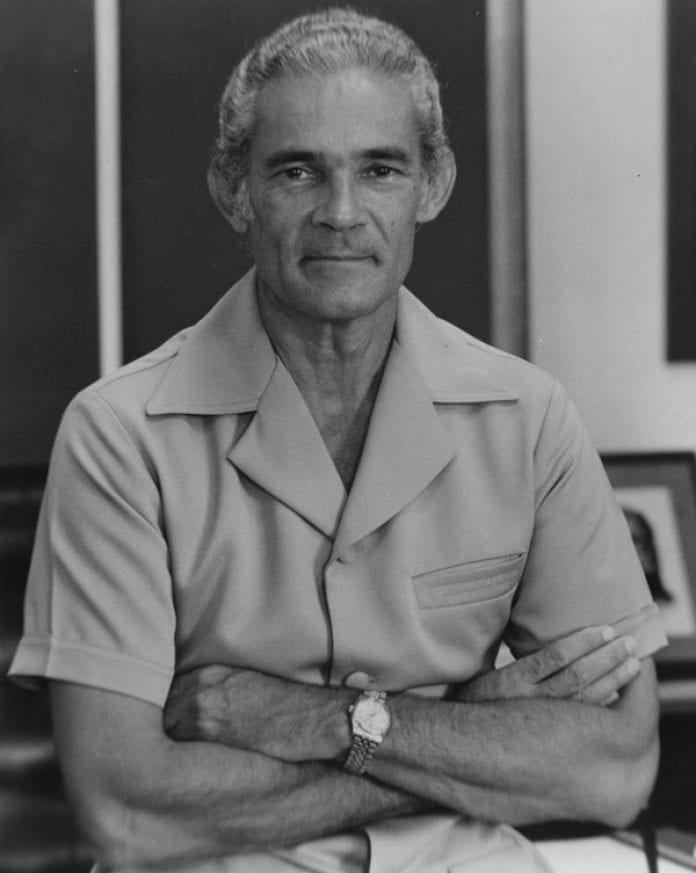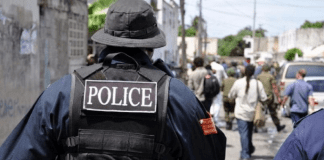December 10 marked the 100th anniversary of the birth of former Jamaican Prime Minister Michael Manley. Older Jamaicans who experienced Manley’s leadership are more familiar with the role he played in Jamaican government and politics, but to younger Jamaicans, his impact on the nation may be less well known.
The Most Honorable Michael Norman Manley, ON, OM, OCC, was first elected as Jamaica’s prime minister in March 1972 when the People’s National Party (PNP) won the general election, defeating the Jamaica Labour Party (JLP), led by former Prime Minister Hugh Shearer. Manley led the PNP to reelection in 1976 and served as prime minister until the party’s crushing defeat by the Edward Seaga-led JLP in October 1980. However, Manley reemerged as prime minister for a third term when he led the PNP to victory in February 1989. His third term lasted until March 1992, when he retired due to ill health.
Michael Manley, affectionately called Michael or “Joshua,” is regarded by some as Jamaica’s most charismatic, passionate, eloquent, flamboyant, and controversial leader.
When he led the PNP to victory in 1972, he campaigned on the promise that “Better Must Come,” riding a wave of political popularity rarely seen in Jamaica’s 62 years. In the months following his election, a commentator in the Jamaican Daily Gleaner wrote, “Michael Manley’s emergence as Jamaica’s prime minister is to his supporters like the coming of a new messiah.” However, within a relatively short period, this populist leader became one of Jamaica’s most controversial figures due to his political philosophy, which sought to bring social equality to the country and alleviate the pressures on the poor through his aggressive advocacy of Democratic Socialism.
Michael, the second son of former Premier and National Hero Norman Manley, was born on December 10, 1924. He was also an avid trade unionist and leader of the National Workers Union (NWU), the foil to the Bustamante Industrial Trade Union (BITU). Like Shearer, he used his involvement in trade unionism as a stepping stone to representative politics. He was appointed a PNP senator in 1962 and elected to the House of Representatives in 1967. When Norman Manley retired as PNP leader in 1968, Michael defeated his rival Vivian Blake to become the party’s leader. He became the opposition leader and positioned himself as the defender of the poor and the proponent of social change, leading the PNP to an overwhelming victory over Shearer and the JLP to become prime minister in 1972.
As prime minister, Manley introduced and implemented a wide variety of social and economic reforms and enhanced Jamaica’s international identity. Among his accomplishments were lowering the minimum voting age to 18, introducing paid maternity leave, outlawing the stigma of illegitimate births and the term “bastards” for children born out of wedlock, launching a national literacy program (JAMAL), instituting workers’ participation in Jamaican public companies, establishing a national youth service program, and offering free education at all levels.
However, as Manley delved deeper into his quest for social equality through Democratic Socialism and fostered closer relations with socialist leaders like Cuba’s Fidel Castro, he lost the support of Jamaica’s wealthier classes and skilled professionals, many of whom migrated to North America. This led to the significant weakening of Jamaica’s economy.
Gradually, Manley lost the support of the U.S. government and was forced to seek financial assistance from the International Monetary Fund (IMF). The IMF’s terms negatively impacted his transformative social agenda. Although the PNP and Manley were reelected in 1976, the worsening economy and escalating political violence eroded his influence, leading to the party’s decisive defeat by the Seaga-led JLP in 1980.
After nine years as opposition leader, the philosophically reformed (and more capitalistic-leaning) Manley once again led the PNP to victory in February 1989. However, he was a shadow of his former flamboyant self, coping with recurring health challenges. His declining health led to his retirement in 1992, after which Percival James Patterson succeeded him as PNP leader and prime minister.
Manley was also a gifted writer. During his tenure as prime minister, he authored Politics of Change (1973) and Search for Solutions (1977). While in opposition, he wrote Jamaica: Struggle in the Periphery (1982), Up the Down Escalator (1987), and A History of West Indies Cricket (1988).
His health steadily deteriorated in retirement, and he died on March 6, 1997, at the age of 72.
Over 50 years after Manley launched his mission for social equality in Jamaica, this goal remains unfulfilled. In fact, social inequality has worsened since his initial tenure. Although once heavily criticized for his socialist policies, similar policies have been implemented by the current government.
Some commentators believe Manley was a leader ahead of his time, and many Jamaicans hope his blueprints for social equality will be revisited as Jamaica moves forward.















